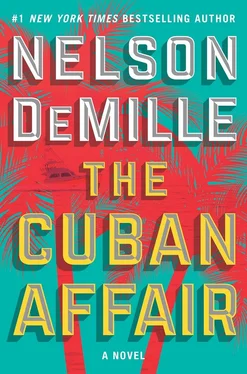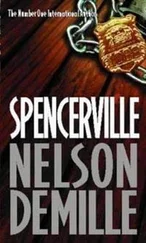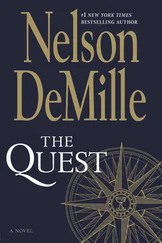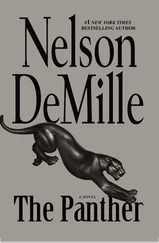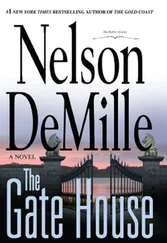Antonio looked at Sara for a few long seconds, then said to her, “So you are Cuban.”
“I am an American.”
“Yes. But a Cuban. Do you speak Spanish?”
“Poco.”
“We will practice. You should speak your native tongue.”
I thought he was going to ask her if she was born in Cuba, or how her parents or grandparents had come to America. But then I realized this was a loaded subject for those who left and those who stayed.
Antonio said to her, “Welcome home.”
Sara didn’t reply.
Antonio had apparently gotten tired of his own voice, so he began asking each of us to say something about ourselves, starting with the two middle-aged couples, but he was not a good listener and his dark eyes went dead.
Barry Nalebuff told us he was a history professor at Yale and he had two lectures scheduled, the topic of which was Cuban-American relations since the Spanish-American War. He assured us, “I’ll keep them short, and the takeaway is that it’s a love-hate relationship, like a troubled marriage, and both sides need serious anger management counseling.”
Antonio said reflexively, “America has always treated Cuba as a colony. Until the revolution.”
Nalebuff replied, “I address that in my lecture. Please come.”
Antonio didn’t commit, though the lecture might do him some good. He looked at me. “And you? Why have you come to Cuba?”
“I thought the brochure said Cayman Islands.”
That got a laugh. Even Antonio smiled. He looked at Sara again, then said to Neville, “So Tad tells me you are a famous author. Tomorrow we go to Hemingway’s house. You will be inspired.”
“I don’t like Hemingway.”
His wife, of course, contradicted him. “You love Hemingway, darling.”
Antonio didn’t know what to say to that, so he called the waiter over for another bottle of wine. Antonio had a good gig.
The fish course was served and Sara asked me, “What is this?”
I can identify a hundred kinds of fish on the line, but not on the plate. I actually don’t eat fish. “It’s a henway.”
“What’s a henway?”
“About three pounds.”
“Stupid joke.”
Have we already had sex?
The multi-course meal continued as the sun set. The two middle-aged couples, whose names I couldn’t remember, asked Antonio lots of questions about the itinerary, which, on paper, seemed like a cultural version of the Bataan Death March.
Sara saw an opportunity to plant a red herring and asked Antonio, “Why can’t we go to the beach?”
He shrugged. “My government would allow this. But it is your State Department which prohibits it. You should ask them.”
Professor Nalebuff provided an answer. “Because of the embargo, Americans are not allowed to travel to Cuba for vacations. But we can come here for people-to-people exchanges, family reunions, art, education, and culture.”
I inquired, “Are the nightclubs considered art, education, or culture?”
Nalebuff smiled and agreed, “It all seems very illogical, but the purpose is to limit the amount of dollars that flow into Cuba.”
Antonio said, “The embargo has caused suffering among the people.”
Nalebuff had apparently had enough of Antonio and replied, “You can trade with ninety-five percent of the rest of the world. Stop blaming the American embargo for all your problems. Your problems are made in Cuba.”
Antonio didn’t like that, and I think he would have moved to another table, but Nalebuff beat him to it. “Excuse me. I need to circulate.” He got up and found an empty seat at Tad’s table.
The two middle-aged couples looked embarrassed and I’m sure they would have smoothed Antonio’s ruffled feathers, but Sara returned to her topic, “If we were allowed to go to a beach, where would you recommend?”
Antonio still seemed pissed at Nalebuff, maybe thinking about reporting him, but he smiled and replied, “There are beautiful beaches all over Cuba, but the closest are in the province called Mayabeque, which surrounds Havana.” He named half a dozen playas, then reminded her, “But this is forbidden for you. However...” He then said something to her in Spanish, which seemed to embarrass Sara. In fact, I heard the words “desnudo” and “playa,” which I translated as “nude beach.” Antonio was a pigalo.
After dessert was served, Tad announced that we were free to go and explore Havana by night, assuring us it was a safe city. “But be in the lobby at eight A.M. for the bus to Hemingway’s house and other stops on our itinerary. Breakfast at seven.”
About half the group stood and drifted toward the elevators, and I asked Sara if she wanted to hit a nightclub.
“It’s been a long day. I need to turn in.”
“Let’s have a nightcap in the lobby. We need to talk.”
She glanced at me and nodded.
Sara said a few good-byes and we crowded into an elevator. On the way down, she locked arms with me, and I knew I was hooked.
We found a table for two in the lobby near the piano. The pianist, dressed in a dark suit, was playing Broadway show tunes, and I said to Sara, “I’m not having an authentic Cuban experience yet.”
“You will when we’re trying to outrun the police.”
You’d think she had served in combat, where we made jokes about death every day.
A disinterested waitress came to our table and we ordered brandies.
Sara asked, “Did you enjoy the evening?”
“I enjoyed being with you.”
She smiled. “You’re an easy pickup.”
“I’m following your script.” I changed the subject and said, “Antonio is an asshole.”
“You were giving him some competition.”
Definitely a bit sassy. Maybe I bring that out in women. I advised her, “Be careful of him.”
“I know that. And I assume Carlos briefed you about the chivatos — the police informants?”
“He did.”
“And about the undercover agents from the Ministry of the Interior who hang around the hotels?”
“He did.”
“Cuba looks deceptively like any Caribbean tropical paradise, and the police state is not always apparent, so some people let their guard down.”
“I hear you.”
We checked our cell phones, but we had no service, though we exchanged phone numbers in case Verizon put a cell tower on the roof this week. “I’ll send you the photos of us in front of the Buick.”
She smiled.
I said, “Good question about the beach.”
“Thank you.”
“What was that about desnudo and playa?”
She smiled again. “So you recognize important words in Spanish.” She translated, “He said there was a nude beach in Mayabeque, for foreigners only, but he would be allowed to go as my private guide.” She added, “He has a car.”
“Pig.”
“I hope you’re not the jealous type.”
I didn’t think I was, but I had my moments. More to the point, when Sara and I went missing, Antonio would report the beach conversation to the police, which would hopefully lead them on a wild-goose chase.
Our brandy came, and we sat in silence, listening to a medley from “South Pacific.”
She looked at me. “Now that you’re here, are you having second thoughts?”
“I’m here at least until Sunday.”
She forced a smile.
A few other people from our group drifted into the lounge looking for either a hostess or the No Smoking section, neither of which existed. I scanned the tables, trying to spot an undercover agent, but everyone looked like an American tourist.
Carlos had also told me that some of the rooms were bugged, and that those rooms were usually given to journalists, foreign government officials, and others who had come to the attention of Cuban state security. That might include Sara Ortega, so this was a good time and place to talk about something more important than Antonio and nude beaches. I asked Sara, “Where is your hiking map?”
Читать дальше
